 HarperCollins Publishers
HarperCollins Publishers
Westerhill Road
Bishopbriggs
Glasgow
G64 2QT
Great Britain Second Edition 2011 Reprint 10 9 8 7 6 5 4 3 2 1 0 HarperCollins Publishers 2005, 2011 EPUB Edition July 2011 ISBN 978-0-00-744469-4 Collins is a registered trademark of HarperCollins Publishers Limited www.collinslanguage.com A catalogue record for this book is available from the British Library Typeset by Davidson Publishing Solutions, Glasgow Printed in India by Gopsons Papers Ltd Acknowledgements
We would like to thank those authors and publishers who kindly gave permission for copyright material to be used in the Collins Word Web. We would also like to thank Times Newspapers Ltd for providing valuable data. All rights reserved under International and Pan-American Copyright Conventions. By payment of the required fees, you have been granted the non-exclusive, non-transferable right to access and read the text of this e-book on screen. No part of this text may be reproduced, transmitted, downloaded, decompiled, reverse engineered, or stored in or introduced into any information storage and retrieval system, in any form or by any means, whether electronic or mechanical, now known or hereinafter invented, without the express written permission of HarperCollins. Entered words that we have reason to believe constitute trademarks have been designated as such.
However, neither the presence nor absence of such designation should be regarded as affecting the legal status of any trademark. HarperCollins does not warrant that www.collinsdictionary.com, www.collinslanguage.com or any other website mentioned in this title will be provided uninterrupted, that any website will be error free, that defects will be corrected, or that the website or the server that makes it available are free of viruses or bugs. For full terms and conditions please refer to the site terms provided on the website. SERIES EDITOR
Rob Scriven MANAGING EDITOR
Galle Amiot-Cadey EDITORIAL COORDINATION
Susanne Reichert
Rachel Smith CONTRIBUTORS
Wendy Lee
Di Larkin
Laurent Jouet
Ccile-Aubinire Robb Introduction The Easy Learning French Verbs is designed for both young and adult learners. Whether you are starting to learn French for the very first time, brushing up your language skills or revising for exams, the Easy Learning French Verbs and its companion volume, the Easy Learning French Grammar, are here to help. Newcomers can sometimes struggle with the technical terms they come across when they start to explore the grammar of a new language.
The Easy Learning French Verbs contains a glossary which explains verb grammar terms using simple language and cutting out jargon. The text is divided into sections to help you become confident in using and understanding French verbs. The first section looks at verb formation. Written in clear language, with numerous examples in real French, this section helps you to understand the rules which are used to form verb tenses. The next section of text looks at certain common prepositions which are used with a number of verbs. Each combination of verb plus preposition is shown with a simple example of real French to show exactly how it is used.
The Verb Tables contain 115 important French verbs (both regular and irregular) which are given in full for various tenses. Examples show how to use these verbs in your own work. If you are unsure how a verb goes in French, you can look up the Verb Index at the back of the book to find either the conjugation of the verb itself, or a cross-reference to a model verb, which will show you the patterns that verb follows. The Easy Learning French Grammar takes you a step further in your language learning. It supplements the information given in the Easy Learning French Verbs by offering even more guidance on the usage and meaning of verbs, as well as looking at the most important aspects of French grammar. Glossary of Verb Grammar Terms ADVERB a word usually used with verbs, adjectives or other adverbs that gives more information about when, where, how or in what circumstances something happens, for example, quickly, happily, now. Glossary of Verb Grammar Terms ADVERB a word usually used with verbs, adjectives or other adverbs that gives more information about when, where, how or in what circumstances something happens, for example, quickly, happily, now.
AGREE (to) to change word endings according to whether you are referring to masculine, feminine, singular or plural people or things. AGREEMENT changing word endings according to whether you are referring to masculine, feminine, singular or plural people or things. ARTICLE a word like the, a and an, which is used in front of a noun. See also definite article and indefinite article . AUXILIARY VERB a verb such as be, have and do when it is used with a main verb to form tenses, negatives and questions. BASE FORM the form of the verb without any endings added to it, for example, walk, have, be, go. Compare with infinitive .
CLAUSE a group of words containing a verb. CONDITIONAL a verb form used to talk about things that would happen or would be true under certain conditions, for example, I would help you if I could. It is also used to say what you would like or need, for example, Could you give me the bill? CONJUGATE (to) to give a verb different endings according to whether you are referring to I, you, they and so on, and according to whether you are referring to past, present or future, for example, I have, she had, they will have. CONJUGATION a group of verbs which have the same endings as each other or change according to the same pattern. DEFINITE ARTICLE the word the. Compare with indefinite article . ; I shut the window . ; I shut the window .
Compare with indirect object . DIRECT OBJECT PRONOUN a word such as me, him, us and them which is used instead of a noun to stand in for the person or thing most directly affected by the action described by the verb. Compare with indirect object pronoun . ENDING a form added to a verb, for example, go > go es , and to adjectives and nouns depending on whether they refer to masculine, feminine, singular or plural things. FEMININE a form of noun, pronoun or adjective that is used to refer to a living being, thing or idea that is not classed as masculine. FUTURE a verb tense used to talk about something that will happen or will be true.
IMPERATIVE the form of a verb used when giving orders and instructions, for example, Shut the door!; Sit down!; Dont go! IMPERFECT one of the verb tenses used to talk about the past, especially in descriptions, and to say what was happening or used to happen, for example, I used to walk to school; It was sunny at the weekend. Compare with perfect . IMPERSONAL VERB one which does not refer to a real person or thing and where the subject is represented by it, for example, Its going to rain; Its 10 oclock. INDEFINITE ARTICLE the words a and an. Compare with definite article . INDEFINITE PRONOUN a small group of pronouns such as everything, nobody and something, which are used to refer to people or things in a general way, without saying exactly who or what they are. INDIRECT OBJECT a noun used with verbs that take two objects.
For example, in I gave the carrot to the rabbit, the rabbit is the indirect object and carrot is the direct object. Compare with direct object . INDIRECT OBJECT PRONOUN when a verb has two objects (a direct one and an indirect one), the indirect object pronoun is used instead of a noun to show the person or the thing the action is intended to benefit or harm, for example,
Next page
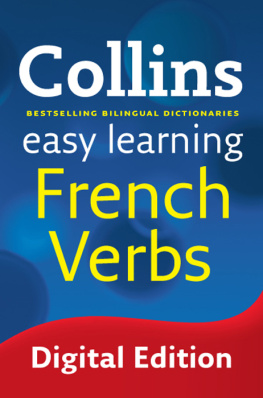
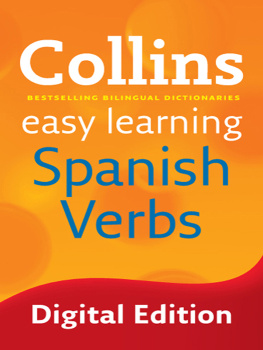


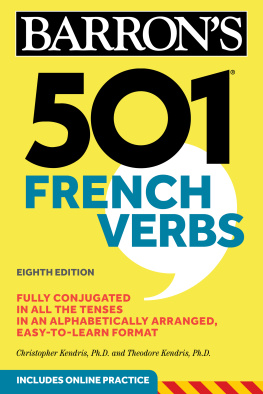
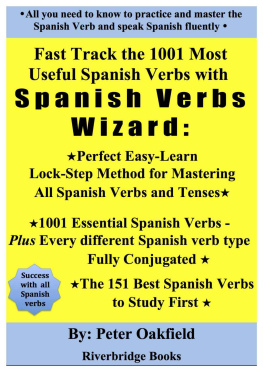
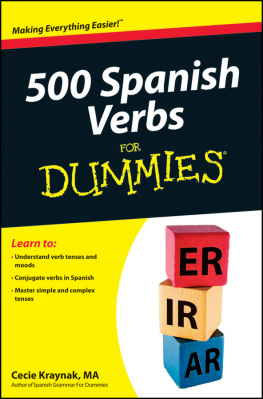
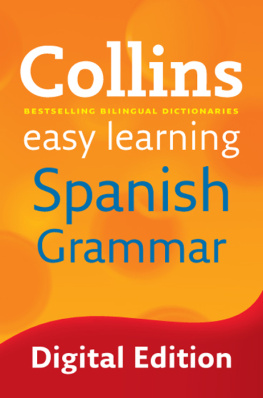
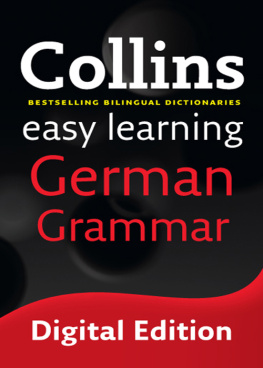
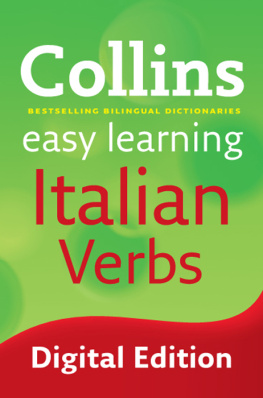
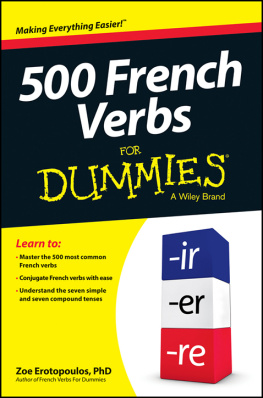
 HarperCollins Publishers
HarperCollins Publishers